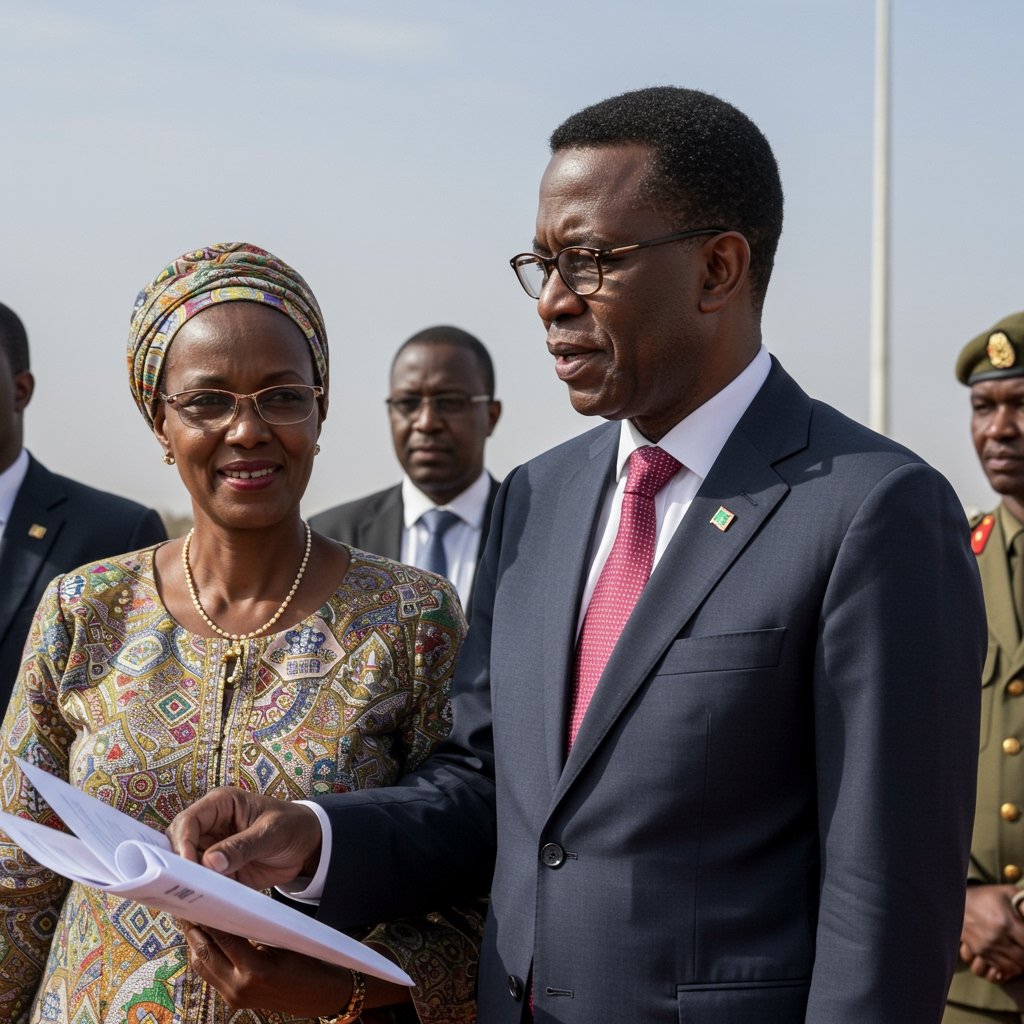NOUAKCHOTT, MAURITANIA – June 19, 2025 – The World Bank Group has released the eighth edition of its Mauritania Economic Update in Nouakchott, highlighting the nation’s efforts to navigate economic challenges while strengthening its social safety nets. The report underscores the government’s commitment to maintaining macroeconomic stability and enhancing support for its citizens, even as the economy experienced a moderate slowdown.
Economic Performance Amidst Global Headwinds
Mauritania’s economic growth moderated to 5.2% in 2024, a decrease from 6.4% in 2023. This deceleration was primarily attributed to a decline in extractive production and weaker public consumption. Despite this slowdown, the report notes that Mauritania’s economic performance remains above the regional average, demonstrating a degree of resilience.
The country has benefited from declining inflation, a positive trend supported by the Central Bank’s stricter monetary policy and lower international food and energy prices. Simultaneously, ongoing fiscal consolidation efforts have contributed to a reduced fiscal deficit, reinforcing the macroeconomic stability sought by the authorities.
A Pivotal Moment for Social Protection
A central theme of the 2025 report is the critical importance of social protection reform. A significant step identified is the government’s strategy to gradually replace generalized subsidies with targeted cash transfer programs. This reform aims to improve the efficiency and reach of social assistance, ensuring support reaches those who need it most.
The report emphasizes the strategic leveraging of the national Social Registry in this process. By utilizing this platform, the government seeks to enhance coverage and improve the identification of vulnerable households, thereby making social spending more effective.
Existing social protection programs, notably the Tekavoul program, have already demonstrated a positive impact. According to the report, Tekavoul and similar initiatives have shown tangible benefits for vulnerable populations and contributed to a reduction in inequality across the country.
Recommendations for Maximizing Impact
To maximize poverty reduction outcomes and build a more adaptive social protection system, the World Bank report puts forth several key recommendations. These include: updating the Social Registry to ensure its data is current and comprehensive; improving targeting accuracy to better identify and reach eligible beneficiaries; and aligning food subsidies more effectively with household needs.
The report also calls for strengthening institutional coordination through the establishment of a national platform. Such a platform would help streamline efforts across different agencies involved in social assistance. Further recommendations involve expanding economic inclusion programs and developing graduation strategies to help beneficiaries move towards self-reliance.
Official figures cited in the report indicate that social assistance spending stood at 1.51% of GDP in 2022, underscoring the scale of current investment in this area.
Outlook and Persistent Risks
The medium-term economic outlook for Mauritania is described as favorable, with growth projected to average 4.9%. However, the report cautions that this positive trajectory is subject to risks. Persistent vulnerabilities include volatility in commodity prices, which can impact key export revenues, and climate shocks, which pose threats to agriculture and livelihoods.
Commenting on the report’s findings, Urbain Thierry Yogo, World Bank Senior Country Economist, and Ibou Diouf, World Bank Country Manager for Mauritania, both stressed the importance of maintaining the momentum of ongoing reforms. Their remarks highlight the need for continued policy action to ensure sustainable and inclusive growth that benefits all Mauritanian citizens.





